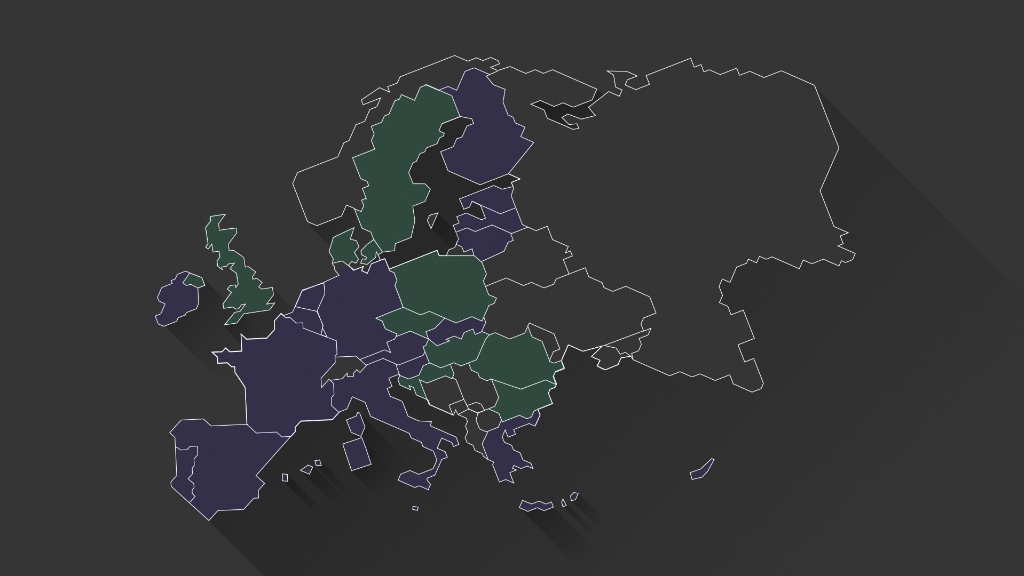
[ad_1]

How’s this for déjà vu? An additional financial debt disaster is brewing in Europe.
Greece requirements European creditors to release hard cash from a bailout agreed in 2015 so it can make financial debt repayments, but officers are at loggerheads. Buyers are beginning to be concerned, demanding greater returns on Greek credit card debt.
Including to the confusion is a warning from the Global Monetary Fund that Greece’s financial debt is unsustainable and on an “explosive” path, an assessment that prevents the fund from participating in a rescue.
The timing could barely be worse. European leaders have a great deal on their plate. Elections are looming in the Netherlands, France and Germany. Brexit negotiations will commence in weeks.
Yet the threat of Greece tumbling out of the euro demands interest. Here’s why the following several months will be critical:
Hammer to tumble
Greece is jogging out of hard cash, but it desires to make repayments to lenders together with the European Central Financial institution. Key bills are coming thanks in July.
If Greece are unable to make the payments, it will default on its credit card debt and spiral out of the eurozone.
In the meantime, its most current bailout — the third considering the fact that 2010 — is proficiently frozen. The negotiating positions of important gamers are further more aside than at any stage due to the fact the bailout was agreed in June, 2015.
There is even disagreement over the dimension of the difficulty going through Greece.
“The IMF’s most up-to-date critique of Greece’s financial debt position was incredibly pessimistic,” reported Jeroen Dijsselbloem, the Dutch finance minister who chairs meetings of leading eurozone finance officials. “It is surprising due to the fact Greece is previously performing improved than that report describes.”
I want it all
The IMF, Greece and lenders led by Germany all have pretty various priorities. Here’s what just about every needs:
The IMF has identified as on Greece to make more ambitious adjustments to its economy, which includes labor market reforms. The IMF did not be part of the third bailout when initially agreed in 2015 because it did not view Greece’s personal debt as becoming sustainable. It even now maintains that Greece can’t be self sustaining without significant personal debt relief.
Greece’s primary lenders agree that Athens ought to carry out the reforms proposed by the IMF. Having said that, they have categorically ruled out any debt aid, a position reiterated by eurozone finance officers on Tuesday.
Greek Key Minister Alexis Tsipras, meanwhile, displays no indicator of yielding to demands for supplemental reforms. He insists that personal debt aid is wanted right before any new concessions are produced.
It really is a common standoff and investors are looking at to see which get together blinks very first.
Place out the hearth
The upcoming key milestone is a meeting of eurozone finance ministers on Feb. 20 — the last ahead of elections get started muddying Europe’s political waters. Agreeing nonetheless more financial support for Greece will grow to be even harder when voters start out casting their ballots.
Just after that, expenditures will begin coming thanks. Greece faces a payment to the ECB of roughly €1.4 billion in late April and a different €4.1 billion in July.
The stake are substantial.
The unemployment level in Greece is expected to run previously mentioned 21% in 2017. Expense is down by much more than 60% and output has contracted by much more than 25% considering that the economical disaster. The country’s social cloth is fraying.
If European lenders refuse even more assistance, Greece’s personal debt will spiral out of handle no make any difference how immediately its overall economy grows, in accordance to the IMF.
That will go away only a person choice — abandoning the euro.
Ted Malloch, President Trump’s predicted decision for U.S. ambassador to the EU, told Greek television on Tuesday that the eurozone’s foreseeable future would be made a decision in the up coming 18 months.
“Undoubtedly there will be a Europe, no matter whether the eurozone survives, I believe it is pretty significantly a question that is on the agenda,” he reported. “I assume this time I would have to say that the odds are increased that Greece alone will split out of the euro.”
CNNMoney (London) To start with printed February 8, 2017: 12:27 PM ET







